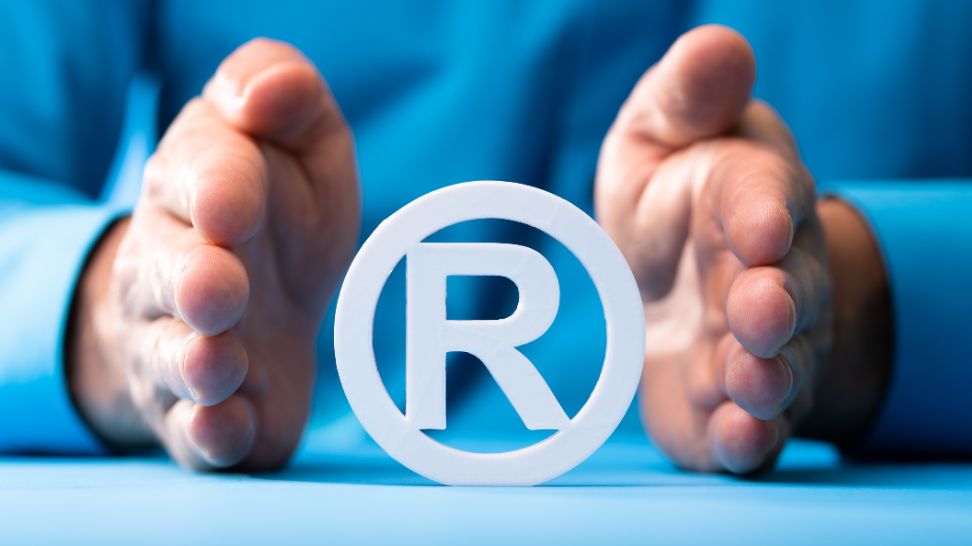Big Tech has a big problem on its hands when it comes to dealing with legal issues. Some of the largest tech companies in the country, including Google, Meta, Apple, and Amazon, have all faced lawsuits filed by federal agencies over the last few years.
It isn’t just tech titans facing the legal wrath of the federal government and others, either. Many smaller tech companies, including startups, have also started dealing with their fair share of lawsuits. This makes asset protection for tech industry companies more important than ever before.
Has your tech company taken the proper steps to employ asset protection strategies? Discover more about how asset protection for tech industry companies can benefit your business below.
Importance of Asset Protection in the Tech Industry
In 2024, the tech industry is expected to bring in about $512 billion in revenue. That’s up about $14 billion, or nearly 3%, from the industry’s 2023 revenue. This stat helps highlight just how big the industry has become in the last couple of decades.
This jaw-dropping number also showcases the importance of asset protection for tech industry companies. With so much money being made in the industry each year, the companies that help push it forward routinely face lawsuits that put their assets at risk.
Understanding Industry-Specific Risks
You could argue that businesses in every industry in the U.S. are dealing with the same problem the tech industry is right now — and you would be right. A recent U.S. Chamber of Commerce report revealed lawsuits cost American businesses about $160 billion annually.
However, the tech industry has industry-specific risks that set it apart. Data breaches, for example, negatively impact the tech industry more than other industries. Tech companies like Meta, Amazon, TikTok, and Uber have all been forced to pay hundreds of millions and sometimes even billions of dollars in penalties following cybersecurity lawsuits filed against them.
Fortunately, these tech behemoths can afford to pay these penalties, but this isn’t the case for many smaller tech companies. They can’t always foot the bill when facing lawsuits.
Legal and Financial Implications
Another big problem that Big Tech and the tech industry as a whole routinely face is that many of the country’s antitrust laws are archaic when you consider how much the world has changed over the last 100 years. Lawmakers couldn’t have anticipated that Google would conduct about 6.3 million searches per minute each day or that Amazon would create an infrastructure capable of shipping almost 6 billion packages annually.
In an effort to change these laws, the federal government has been quick to file lawsuits against tech companies. Federal agencies hope to limit the power these tech companies yield through litigation. This has opened more tech companies up to lawsuits and resulted in a larger need for asset protection for tech industry companies.
Common Asset Protection Strategies
No matter how big or small a tech company is, it should employ a couple of common asset protection strategies as part of its risk mitigation push. These tried-and-true strategies can limit the hits tech companies take when they encounter lawsuits related to data breaches and other risks.
Insurance Solutions
Regardless of what industries they’re in, all businesses should have a few basic types of insurance to protect them. This includes:
- General liability insurance
- Property insurance
- Product liability insurance
Tech companies should invest in these insurance solutions, but they should also find insurance solutions that protect them from industry-specific risks, too. This includes:
- Cyber liability insurance
- Technology errors and omissions insurance
- Intellectual property (IP) insurance
Legal Structuring
About 137,000 new startups emerge daily throughout the world. More than 150 million startups exist globally.
If you own a startup, you might not think creating a limited liability company (LLC) for it is necessary just yet. You should still set up an LLC to take advantage of asset protection for tech industry companies.
Establishing an LLC creates separation between your personal assets and your company. If someone ever sues your company, your personal assets will be off-limits.
Using Offshore Trusts for Tech Companies
Structuring your tech company as an LLC can assist your asset protection efforts, but why stop there? Add another layer of asset protection for tech industry companies by creating an offshore trust.
Benefits of Offshore Trusts
Here are the biggest benefits of using offshore trust structures to provide asset protection for tech industry companies.
Enhanced Privacy and Confidentiality
To succeed in the tech industry, a company typically needs to keep quiet about what it’s working on behind the scenes. It also needs to keep its intellectual property, including patents, trademarks, and trade secrets, safe.
An offshore trust can enhance a tech company’s privacy and confidentiality. Your tech company can keep intellectual property and other assets that you want to protect in this trust for safekeeping.
By placing assets in an offshore trust, your company can reduce its exposure to the prying eyes of competitors, as these jurisdictions often have strict privacy laws that prevent trust-related information from becoming publicly accessible. This additional layer of confidentiality helps ensure that sensitive assets remain out of competitors’ hands.
Asset Protection Against Litigation
If your tech company sticks around for a long enough time, you’ll likely face at least a few lawsuits. If you don’t have an offshore trust set up to provide asset protection for tech industry companies, you risk losing important assets to lawsuit settlements and judgments.
Selecting the Right Offshore Jurisdiction
If you’re going to create an offshore trust to provide your tech company with asset protection, don’t just choose the first offshore jurisdiction you can find. Instead, select a jurisdiction known to provide tech companies with iron-clad asset protection.
Jurisdictions with Favorable Trust Laws
The Cook Islands have some of the strongest asset protection laws in the world. With a Cook Islands Trust, you can protect your company’s assets from:
- Seizures
- Foreclosures
- Bankruptcies
- Business disputes
- Divorces
The Federation of Saint Christopher and Nevis have strong asset protection laws, too. A Nevis Trust can provide asset protection for real estate, intellectual property, business interests, and more.
Compliance With International Regulations
While you’ll enjoy many advantages by creating an offshore trust, complying with international regulations is essential. An experienced asset protection attorney can ensure you remain in compliance with these regulations.
Intellectual Property Protection
Intellectual property theft costs companies up to $600 billion every year. This is another area in which you can benefit from investing in asset protection for tech industry companies. You can protect intellectual property like patents, trademarks, and trade secrets.
Patents and Trademarks
Patents protect the products your company has created, while trademarks protect your business name and logo. Safeguard these forms of intellectual property to avoid IP theft.
Trade Secrets
Trade secrets can include:
- Research data
- Software algorithms
- Supplier lists
- Advertising strategies
Protect them at all costs to prevent your competitors from accessing them.
Regulatory Compliance and Asset Protection
Regulatory compliance and asset protection should work hand-in-hand to help your tech company protect its assets while also adhering to industry regulations. You can avoid everything from costly fines to reputational damage by prioritizing them.
Navigating Data Protection Regulations
Data protection regulations govern the way tech companies gather, use, and store data from consumers. They also enable consumers to take legal action against your tech company if they suspect you didn’t perform data encryption properly.
With asset protection for tech industry companies, you can protect your assets from any litigation you might face related to data protection regulations.
Ensuring Financial Reporting and Transparency
While an offshore trust can deliver the necessary asset protection for tech industry companies, your business should still take financial reporting and transparency seriously. An asset protection lawyer can lend a hand with this aspect of creating an offshore trust.
Contact Us To Help Provide Asset Protection for Your Tech Company
Securing asset protection for tech industry companies can legitimize your business and protect the assets you’ve worked so hard to accumulate. Blake Harris Law can further discuss the benefits of placing your company’s assets in an offshore trust. Call us for more information.



